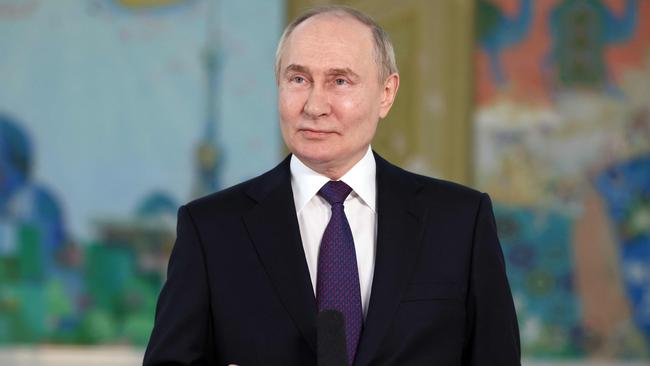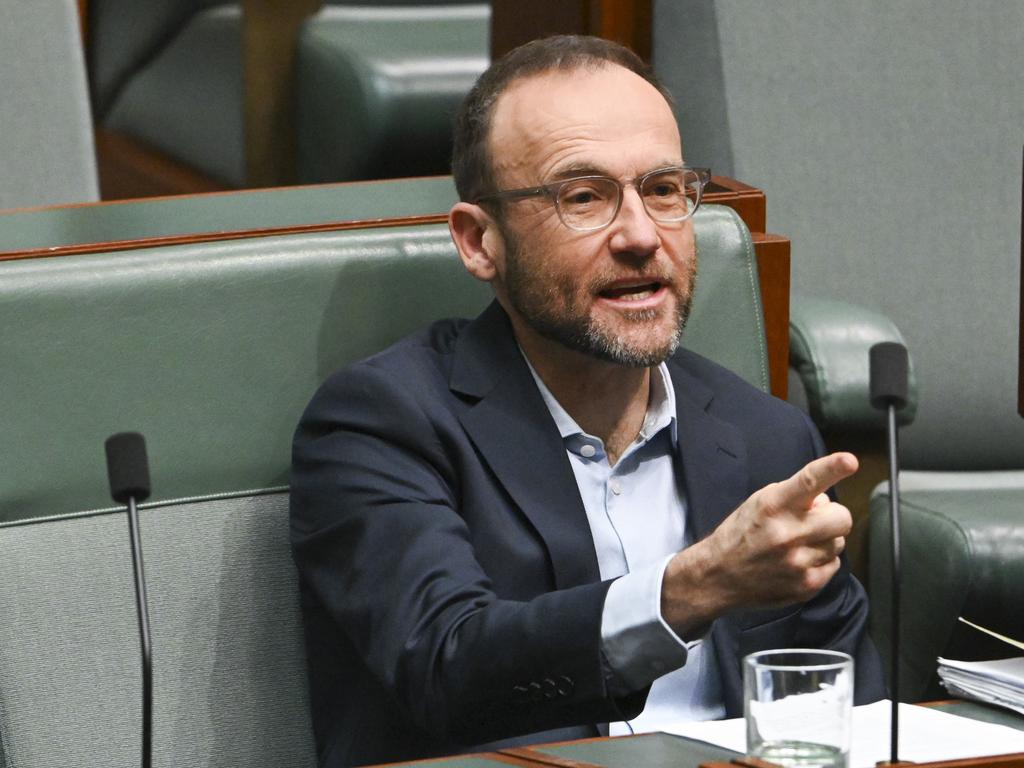Self-interest has always trumped the idea of a rules-based global order
The ICC issuing warrants for the arrest of Netanyahu and his defence minister is grandstanding by this toothless, bloated court.

The court’s arrest warrant for Vladimir Putin in early 2022 was widely praised across the US and the wider West; the chief prosecutor’s call for arrest warrants for Benjamin Netanyahu and his Defence Minister Yoav Gallant, by contrast, has triggered widespread outrage in Washington and elsewhere. Both determinations should be seen as toothless grandstanding by a bloated international body trying to justify its existence.
Neither Putin nor Netanyahu faces any real prospect of arrest, and neither the existence of the court nor the international law it allegedly enforces has made any difference to the foreign policies of Russia or Israel, which don’t recognise its authority in any case.

Newsflash: there is not, and never was, a rules-based global order, despite our politicians’ fondness for evoking it. The US, apparently its greatest champion, has used its military and economic might to topple numerous national governments since World War II when it suited it, from Iran and Brazil in the 1950s and ’60s to Afghanistan and Iraq this century.
Washington imposes tariffs arbitrarily, ignores the World Trade Organisation and is pushing to seize Russia’s $US300bn ($450bn) in foreign exchange reserves without any legal justification. None of this is necessarily a criticism of the US or its actions; all powerful nations ignore international law when they deem their interests are at stake – China in the South China Sea, Russia in Ukraine, India in Kashmir – but spare us the rules-based global order rhetoric.
Even Australia told the ICC to sod off in 2020 when one of its prosecutors claimed the nation’s offshore detention system was “unlawful and degrading”.
What governments fear is not international law but that other nations might form coalitions, economic or military, against them to thwart whatever intrusive actions they may be considering. As Henry Kissinger once remarked, “In the end, peace can be achieved only by hegemony or by balance of power.” With less than 5 per cent of the world’s population and about 15 per cent of global GDP (adjusted for purchasing power) even the US faces constraints.
Governments leverage the approval of international law and institutions when it furthers their aims and ignore it when it doesn’t.
“The sad fact is that international politics has always been a ruthless and dangerous business,” international relations scholar John Mearsheimer has observed.

The chief practical purpose of international law is as a form of employment for lawyers and bureaucrats, providing interesting and well-paid jobs for the world’s educated elite. The ICC has 18 judges and about 900 staff enjoying generous tax-free salaries and a pace of work that is surely tolerable: in 22 years the court has heard 31 cases and won 10 convictions. If it’s a particularly busy week, the unrelated International Court of Justice has another 15 judges and 200 similarly paid staff just down the road in The Hague.
The greater the remoteness from voters, the greater the bloat. By comparison the US Supreme Court, which has a consequential bill of rights to adjudicate, has nine judges, a staff of about 500 and hears about 70 cases a year.
Trying to influence wars via an international legal system with zero enforcement mechanism can be worse than useless. Issuing symbolic arrest warrants easily could enrage targeted political leaders and their supporters, who typically are seized by the moral rightness of their cause. Putin, for instance, has successfully used the ICC warrant as evidence the NATO-dominated court in The Netherlands is biased against Russia.
Moreover, the losing side will never respect the court’s decision. War remains the depressing continuation of politics by other means. Many millions of law-abiding, peaceful people around the world vehemently support Israel or the Palestinians, Russia or Ukraine, for their own range of personal reasons.
Top professors, looking at the same facts, will draw different conclusions about who is right and wrong and which side started it.
The same is true of democratically elected governments, which have a range of views on the two disputes. In the case of violent crimes, those covered by domestic law and institutions, no one sympathises with the perpetrator. The immorality of the offence is clear to all.
Humans are highly tribal, political creatures. They pick which side they support, then work backwards from there using every fact and rhetorical device they can find to smear the other side and bolster their side’s case. It’s goodies and baddies, and it’s no surprise each side believes they are the former. Few nations have the right to claim the moral high ground when it comes to warfare.
Israel is hypocritically criticised, from Paris to Washington, for allegedly killing or starving many civilians in Gaza as it seeks to destroy Hamas.
Former US secretary of state Madeleine Albright famously told US 60 Minutes that the starvation of 500,000 Iraqi children as a result of US sanctions on Iraq, was “worth it”, without attracting anywhere near the criticism. France should recall its Algerian war.
It might be the law of the jungle out there, but it can be peaceful. The 100 years to 1914, for instance, were among the most peaceful in history, without a single international organisation.
Right now, Europe and the Middle East are embroiled in two horrific wars with little prospect of a resolution when the international community has never been so awash with lawyers.
Things even may be looking up: the world is coming to look more like it did in that relatively peaceful 19th century, when no one nation held overwhelming global power.








If there’s a silver lining to the International Criminal Court’s attempt to obtain arrest warrants for Israel’s democratically elected Prime Minister, it must be showcasing the hypocritical nonsense that is the rules-based global order.